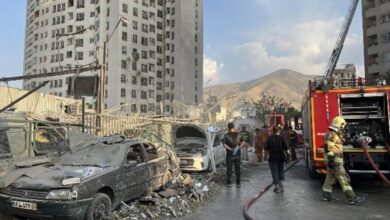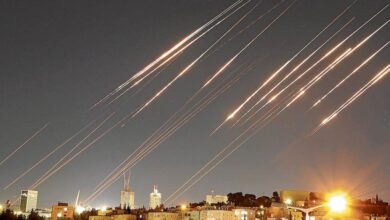4 Points to understand Sheik Jarrah and Israel violence
For several days, violence in Israel between Palestinians and Jews has increased again.

We tell you what you need to know to understand the Israeli-Palestinian conflict. Photo: Wikimedia-Raya Sharbain
LatinAmerican Post | Santiago Gómez Hernández
Listen to this article
Leer en español: 4 Puntos para entender el Sheik Jarrah y la violencia en Isarel
The Palestinian-Israeli conflict is not new and it always draws world attention due to the political, economic, diplomatic and religious relevance of this small piece of land located at the eastern end of the Mediterranean Sea.
The upsurge in protests and clashes between the Palestinian minority and the Israeli Security Forces, and even the bombings of the Gaza Strip and rockets targeting Israel, have both historical and recent ingredients.
1. Evictions in Sheik Jarrah
Sheikh Jarrah is an Arab, Palestinian and Muslim majority neighborhood located in East Jerusalem. Despite the fact that these territories are part (according to the international community) of Palestine, Israel controls them de facto. Recently, the Central Court of East Jerusalem approved a decision to evict seven Palestinian families from their homes in favor of Israeli settlers.
Because of this, the Palestinian community decided to protest against these decisions and this has led to clashes with the Israelis and the police, leading to several acts of police violence and protests, both peaceful and violent. Events that were not recorded since the second Intifada (200-2005), according to El País de España.
Also read: Afghanistan Today: 10 Years After Bin Laden's Death
אלימות תוך כדי מעצר בהר הבית. pic.twitter.com/JWwhGZ5EO0
— نير حسون Nir Hasson ניר חסון (@nirhasson) May 10, 2021
For its part, the Supreme Court received appeals from Palestinian families who refuse to leave their homes and is waiting for these rulings to come out (apparently postponed due to the current high tension).
2. Jerusalem Day
This recent spike in violence also coincided with Jerusalem Day. On that day the Israeli community, mainly Jewish, celebrates the triumph of its army and the conquest of East Jerusalem in the 1967 war. On this day, various extremist and right-wing groups pass through various Muslim neighborhoods as a form of celebration, but which is also seen as inciting and mocking.
Because of this, the Israeli authorities had to reschedule the marches or order alternate routes in which they did not pass through predominantly Jewish neighborhoods, which could increase violence.
3. Illegal Jewish Settlements
The Government of Israel has and defends a policy of settlements that in the international community. Several regions in the West Bank and East Jerusalem are part of Palestine, as agreed in international pacts. However, despite this, the Israeli government sponsors and encourages its citizens to live in settlements located further east than agreed in the peace accords.
These settlements are considered illegal under International Law and are one of the most conflictive points that will hinder a peace agreement between the parties, since these areas, which are considered by the world as Palestinian, have a Jewish population and the Israeli government will not raise that they remain under his dominion.
#UN Envoy @TWennesland is deeply concerned by the surge in tensions & violence in the o. #WestBank, incl. E. #Jerusalem. Calls on political, religious & community leaders to stand firmly against violence & incitement. "If unaddressed, the situation could spiral out of control.” pic.twitter.com/acleVWjsSH
— UNSCO (@UNSCO_MEPP) May 6, 2021
For the United Nations, "East Jerusalem is part of the occupied Palestinian territories, in which Humanitarian Law applies," adding that "the occupying power must respect and not confiscate private property" there, Rupert Colville, the Spokesman for the Office of the UN High Commissioner for Human Rights He also recalled that Israel cannot impose its laws in occupied territories, as it would be a violation of Human Rights.
4. The symbolic importance of Jerusalem
In addition to the decades-long territorial conflict between Israelis and Palestinians, Jerusalem has always been one of the most critical points in an eventual agreement. This city is of symbolic importance for the 3 largest and most powerful monotheistic religions in the world: Judaism, Islam and Christianity.
For Christians, Jerusalem is the place where Christ died. While for the Jews, here are the ruins of Solomon's temple. Here the faithful congregate to pray at the wailing wall and where the third temple is expected to be built at the time of the arrival of the Messiah.
But it is also considered the 3 most important city for Muslims. In addition to the fact that for Muslims, Christ was also a prophet and who is respected, here is the Al-Aqsa Mosque and the Dome of the Rock. Precisely, that rock is where it is believed that Abraham prepared to sacrifice his son, a founding event of both the Judeo-Christian tradition and the Islamic lineage.




